#Africa Now
Explore tagged Tumblr posts
Text
Just a small reminder
Do not stop talking about Palestine
Do not stop boycotting, do not stop protesting, do not stop speaking out. Be the voice for those who had their autonomy stripped away. Be the voice for the people, the parents, the grandparents, the children, the infants. Be the voice for the animals, the trees, the buildings, the very soil that has been desecrated. Stand up for what is right in whatever little way is possible, but do not stop talking about Palestine.
DO NOT STOP TALKING ABOUT PALESTINE
DO NOT STOP TALKING ABOUT PALESTINE
DO NOT STOP TALKING ABOUT PALESTINE
#palestine#gaza#free palestine#free gaza#from the river to the sea palestine will be free#south africa#anti zionisim#gaza genocide#ceasefire now#endisraelsgenocide
8K notes
·
View notes
Text

#palestine#gaza#free palestine#israel#imperialism#social justice#jerusalem#colonialism#free gaza#ceasefire now#international court of justice#palestine genocide#gaza strip#gaza under attack#boycott israel#south africa#politics#hamas#human rights#us politics#biden administration#israeli settlers#IDF#Genocide Joe#fuck israel#yemen#tel aviv#middle east#palestinian resources
7K notes
·
View notes
Text
ICJ Ruling
Okay, let's get into this.
First of all, I get the frustration at the court not ordering a ceasefire. I was disappointed and frustrated at first too, since a ceasefire was the biggest and most important preliminary measure South Africa was requesting - and of course we just all want this horror to finally end for the people in Gaza. So I get the frustration and disappointment, I really do.
However, I do think this ruling is still a major win for South Africa, Palestine, and international law as a whole and here's why:
The court acknowledged that it has jurisdiction over this case and completely dismissed Israel's request to throw out the case as a whole. It will now determine at the merits stage (that will probably take years) whether Israel is actually commiting genocide.
The court acknowledged that Palestinians are a "distinct national or ethnic group and therefore deserving of protection under the genocide convention". Pull this out next time someone tells you "there's no such thing as Palestinians, they're all just Arabs".
The court acknowledged very unambiguously that "at least some" of Israel's actions being genocidal in nature is "plausible". South Africa has a case, officially. Israel is accused of genocide, in a way the ICJ deems "plausible", officially. This is huge. (And seriously, how freaking satisfying was it to hear all of those genocidal statements by Israeli politicians read out loud and used as justification for this rulling?)
The court might not have ordered a "ceasefire" in those words, but they did order Israel to "immediately end all genocidal acts" (which includes killing and injuring Palestinians) and submit proof that they actually did. How are they going to comply with this ruling without at least severly reducing or changing what they're doing in Gaza?
In fact, this wording might actually be more appropriate for a genocide (vs a war), as author and journalist Ali Abunimah notes on Twitter:


He's completely right. Israel lost today, by overwhelming majority (I mean, 15 to 2? I heard people predict the rulings would be very close, like 9 judges vs 8, but instead we got 15 to 2 (and even 16 to 1 on the humanitarian aid). Holy shit.) The court disimissed almost everything Israel's side of lawyers said, while acknowledging that South Africa's accusations are "plausible".
And this is important especially because of Mr Abunimah's second tweet there^. Because the question is, where do we go from here?
This ruling means that Israel is officially /possibly/ commiting genocide and that should have huge international consequences. The rest of the world now HAS to take these accusations seriously and stop arming and supporting Israel - and if they won't do it on their own, we, the people, have to make them. This is THE moment to rise up all around the world, especially in the countries most supportive of Israel (the US, the UK, Germany): Protest, call your representatives and demand a ceasefire and an end of arms deliveries to Israel.
We now have a legal case to back our demands: If Israel is, according to the ICJ, "plausibly" commiting genocide, then all of our governments are, according to the ICJ, "plausibly" guiltly of aiding in genocide. And we need to hold that over their heads and demand better. We need to do that right now and in huge numbers. Most politicians only care about themselves and saving their skin. We have to make them realize that they could be accused of aiding in genocide.
(As a German, I'm thinking of Germany here in particular: After South Africa's hearing, our government dismissed their case as having "no basis" - how are they going to keep saying that now that the ICJ officially thinks otherwise? Over the last months, people here have been arrested at protests for calling what's happening in Gaza a genocide. How are the police supposed to legally keep doing that now that the ICJ has officially deemed this accusation "plausible"? I used to be scared to use the word "genocide" at protests or write it on my protest signs - not anymore, have fun trying to arrest me for that when the ICJ literally has my back on this one 🖕🏻.)
So yeah - don't be defeatist about this, don't let Israel's narrative that they "won" (they didn't) take over. This might not be everything we wanted, but it's still a good result. Don't let what the court didn't say ("ceasefire"), distract you from the very important things that they did say. Let this be your motivation to get loud and active, especially if you live in any country that supports Israel. Put pressure on your governments to not be complicit in genocide, you now officially have the highest international court on your side.
#ICJ#ICJ ruling#ICJ hearing#South Africa vs Israel#Free Palestine#Palestine#Palestinian genocide#Gaza#Germany#I get why Palestinians are disappointed and I don't want to devalue those feelings#(but maybe this can give you hope)#But thinking about this as a German this is huge#Most politicians and people here still deny (or at least strongly doubt) that there's a genocide happening#Calling it a genocide is seen as an 'extremist' position#And some of our politicians have been borderline gaslighting us and calling anyone who calls it genocide 'crazy'#So I'm just feeling immense vindication and a newfound fearlessness and motivation to be louder and more active than ever#and I hope others here feel the same#I hope the quiet masses stop being scared to say something now
6K notes
·
View notes
Text
BREAKING NEWS: The International Court of Justice finds that there is sufficient basis for South Africa’s case against Israel and will not dismiss the case as Israel requested.
This is truly an historic moment.
Very well done, South Africa 👏🏿👏🏿👏🏿
#politics#palestine#gaza#south africa#israel#war crimes#genocide#icj hearing#icj case#international court of justice#collective punishment#ethnic cleansing#never again#never again to anyone#israel is a terrorist state#israel is an apartheid state#benjamin netanyahu is a war criminal#ceasefire#ceasefire now#bds#boycott divest sanction#🇵🇸
5K notes
·
View notes
Text
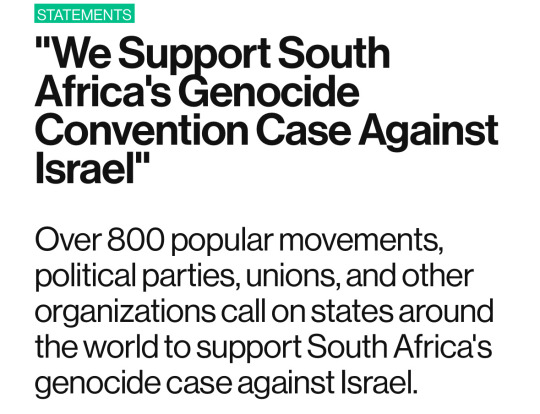
Source


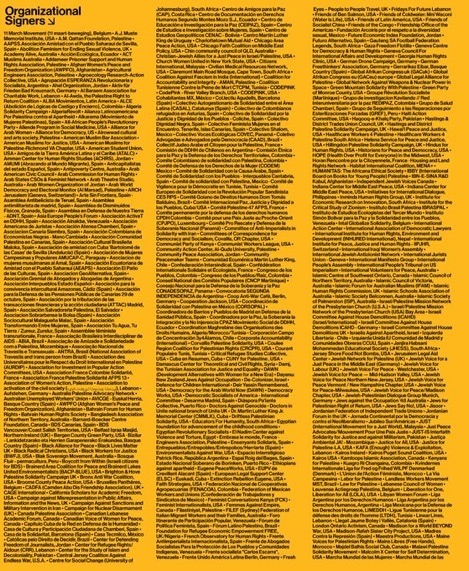
Free Palestine
#free Palestine#news#current events#South Africa#important#world affairs#world news#international politics#politics#government#the left#progressive#ceasefire now#Israel#Palestine
2K notes
·
View notes
Text
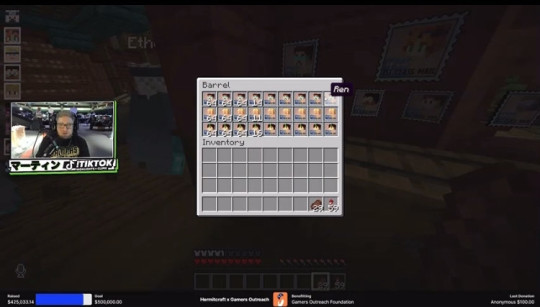
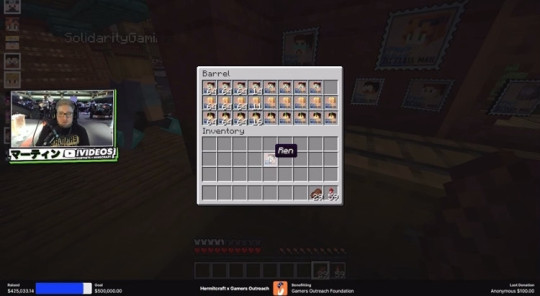
etho: ohp someone put a ren stamp in
martyn: that was me
#steals a ren stamp and then does this OKAY!#classic treebark bait#hermitcraft#hermitblr#hermitcraft charity livestream#martyn inthelittlewood#ethoslab#smallishbeans#“we're gonna send joel for some reason”#they're all insane#mcyt#trafficblr#trafficsmp#boat boys#renchanting#too bad rens living it up in south Africa right now#he would have loved to give these two a tour of his gigacorp city#renchantyn#hermits charity live 2024#treebark#dogwarts#renchanting duo#rendog#renthedog
855 notes
·
View notes
Text
I'm not making excuses for reblogging and sharing what's happening in gaza. people are being murdered and i won't stand silent. yes, i know social media is the place to escape reality for a lot of people (including myself), but these are human lives we're talking about. yes, it makes you sad. IT SHOULD. this whole thing shouldn't even be happening in the first place, but it is. it's happening and it's horrible and YOU CAN MAKE A DIFFERENCE, OKAY? you can donate. you can use your power, which is a social media account, to make visible the struggle of Palestine, Yemen, Lebanon and all those trying to stop this war.
look, no one's a bad person for trying to protect themselves from the hurt it causes to see such atrocities. just, try to make the minimal effort to make things better. please.
#free palestine#palestine#free gaza#gaza#south africa#yemen#ceasefire#ceasefire now#tel aviv#world news#israel#fuck israel#fuck us#fuck the uk#fuck germany#too now that we're at it
1K notes
·
View notes
Text
African poverty is partly a consequence of energy poverty. In every other continent the vast majority of people have access to electricity. In Africa 600m people, 43% of the total, cannot readily light their homes or charge their phones. And those who nominally have grid electricity find it as reliable as a Scottish summer. More than three-quarters of African firms experience outages; two-fifths say electricity is the main constraint on their business.
If other sub-Saharan African countries had enjoyed power as reliable as South Africa’s from 1995 to 2007, then the continent’s rate of real GDP growth per person would have been two percentage points higher, more than doubling the actual rate, according to one academic paper. Since then South Africa has also had erratic electricity. So-called “load-shedding” is probably the main reason why the economy has shrunk in four of the past eight quarters.
Solar power is increasingly seen as the solution. Last year Africa installed a record amount of photovoltaic (PV) capacity (though this still made up just 1% of the total added worldwide), notes the African Solar Industry Association (AFSIA), a trade group. Globally most solar PV is built by utilities, but in Africa 65% of new capacity over the past two years has come from large firms contracting directly with developers. These deals are part of a decentralised revolution that could be of huge benefit to African economies.
Ground zero for the revolution is South Africa. Last year saw a record number of blackouts imposed by Eskom, the state-run utility, whose dysfunctional coal-fired power stations regularly break down or operate at far below capacity. Fortunately, as load-shedding was peaking, the costs of solar systems were plummeting.
Between 2019 and 2023 the cost of panels fell by 15%, having already declined by almost 90% in the 2010s. Meanwhile battery storage systems now cost about half as much as five years ago. Industrial users pay 20-40% less per unit when buying electricity from private project developers than on the cheapest Eskom tariff.
In the past two calendar years the amount of solar capacity in South Africa rose from 2.8GW to 7.8GW, notes AFSIA, excluding that installed on the roofs of suburban homes. All together South Africa’s solar capacity could now be almost a fifth of that of Eskom’s coal-fired power stations (albeit those still have a higher “capacity factor”, or ability to produce electricity around the clock). The growth of solar is a key reason why there has been less load-shedding in 2024...
Over the past decade the number of startups providing “distributed renewable energy” (DRE) has grown at a clip. Industry estimates suggest that more than 400m Africans get electricity from solar home systems and that more than ten times as many “mini-grids”, most of which use solar, were built in 2016-20 than in the preceding five years. In Kenya DRE firms employ more than six times as many people as the largest utility. In Nigeria they have created almost as many jobs as the oil and gas industry.
“The future is an extremely distributed system to an extent that people haven’t fully grasped,” argues Matthew Tilleard of CrossBoundary Group, a firm whose customers range from large businesses to hitherto unconnected consumers. “It’s going to happen here in Africa first and most consequentially.”
Ignite, which operates in nine African countries, has products that include a basic panel that powers three light bulbs and a phone charger, as well as solar-powered irrigation pumps, stoves and internet routers, and industrial systems. Customers use mobile money to “unlock” a pay-as-you-go meter.
Yariv Cohen, Ignite’s CEO, reckons that the typical $3 per month spent by consumers is less than what they previously paid for kerosene and at phone-charging kiosks. He describes how farmers are more productive because they do not have to get home before dark and children are getting better test scores because they study under bulbs. One family in Rwanda used to keep their two cows in their house because they feared rustlers might come in the dark; now the cattle snooze al fresco under an outside lamp and the family gets more sleep.
...That is one eye-catching aspect of Africa’s solar revolution. But most of the continent is undergoing a more subtle—and significant—experiment in decentralised, commercially driven solar power. It is a trend that could both transform African economies and offer lessons to the rest of the world."
-via The Economist, June 18, 2024. Paragraph breaks added.
#one of the biggest stories of this century is going to be the story of the African Renaissance#I promise you#well preferably they'll come up with a non-European term for it lol#but trust me it WILL happen and it will be SO good to see#africa#south africa#nigeria#kenya#solar#solar power#solar panels#solar pv#energy#clean energy#poverty#electrification#distributed energy#electricity#infrastructure#hope#solarpunk#good news#solar age#<- making that a tag now
416 notes
·
View notes
Text
Look who's using civilians as a human sheild
The IDF and israel army media used to do all horrible things and claim that the Palestinian do it.
But now everything is documented with reports, photos and videos
So share it as much as u can, be the voice for the Palestinian people.
#gaza#palestine#فلسطين#غزة#israel#free gaza#free palestine#gaza strip#south africa#international justice court#international court of justice#israel crimes#israel massacre#israel is a terrorist state#israel is an apartheid state#ethnic cleansing#ceasefire now#stop war#stop genocide
636 notes
·
View notes
Text
Fuck Israel
#free palestine#israel#gaza#palestine#ceasefire#free gaza#ethnic cleansing#hamas#genocide#international court of justice#icj#south africa#endisraelsgenocide#ceasefire now#stop the genocide#palestine genocide#antizionism
653 notes
·
View notes
Text


This is the difference
#free palestine#palestine#gaza#palestine will be free#justice for palestine#support palestine#resistance hamas#israel is a terrorist state#israel#end the occupation#occupied palestine#stop genocide#gaza strip#free gaza#ceasefire now#ceasfire now#ceasefire#south africa#yemen
555 notes
·
View notes
Text

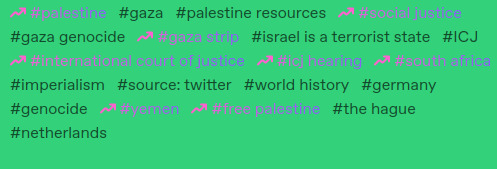
tags update:
palestine, free palestine, south africa, yemen, icj hearing, international court of justice, israel, social justice, gaza strip, free gaza are all trending
DON'T STOP TALKING ABOUT PALESTINE, ISRAEL IS STILL BOMBING THEM DURING THE TRIAL
#palestine#free palestine#gaza#free gaza#israel#jerusalem#colonialism#social justice#imperialism#ceasefire now#international court of justice#palestine genocide#gaza strip#gaza under attack#boycott israel#south africa#politics#hamas#human rights#us politics#biden administration#israeli settlers#IDF#Genocide Joe#Iof#fuck israel#yemen#tel aviv#middle east#palestinian resources
6K notes
·
View notes
Text


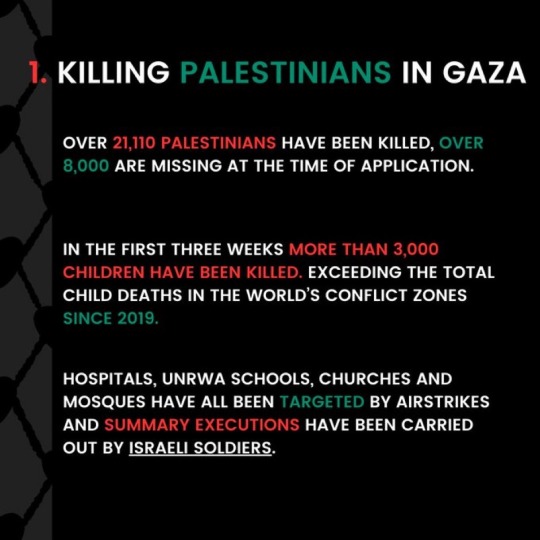
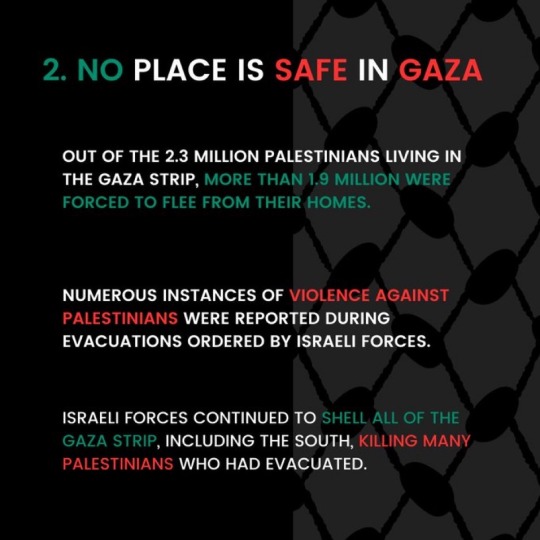
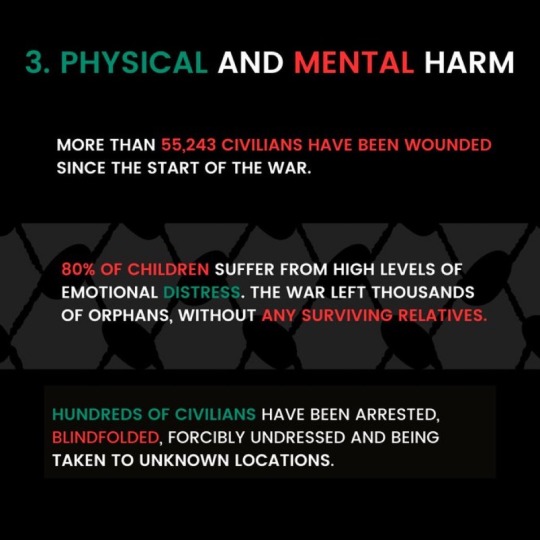





#free palestine#gaza#west bank#south africa#international court of justice#ceasefire now#jerusalem#yemen#social justice#lgbtq#palestine
704 notes
·
View notes
Text
Game of Thrones stars and other actors read South Africa's case file charging Israel with genocide at the International Court of Justice.
Transcript:
It was already known that repeated exposure to conflict and violence, including witnessing and experiencing housing demolition, combined with Israel'siege of Gaza since 2007, is associated with high levels of psychological distress amongst Palestinians.
Indeed, the United Nations Security Council Resolution 2712 expressed its deep concern that the disruption of access to education has a dramatic impact on children and that conflict has a lifelong effect on their physical and mental health.
This disruption and its dramatic impact on children must be considered in particular and in the context of the number of Palestinian students and educators who have been killed, 4,037 and 209 respectively, and wounded, estimated at 7,259 and the number of Palestinian schools having been damaged or destroyed 352 or 74% of the schools in the whole of Gaza.
Medical professionals assess that the health effects on all Palestinian children, women, men, older people, people with disabilities and people marginalized identities are immense.
An emergency coordinator for Médecins Sans Frontières interviewed on her return from five weeks in Gaza, describes: It's even worse in reality than it looks. The amount of suffering is just something incomparable. It's really unbearable. I'm speechless when I try and think of the future of these children. Generations of children who will be handicapped, who will be traumatized.
The very children in our mental health program are telling us that they would rather die than continue living in Gaza now.
The extreme levels of bombardment and lack of any safe areas are also causing severe mental trauma in the Palestinian population in Gaza.
Even before the latest onslaught, Palestinians in Gaza suffered severe trauma from prior attacks. 80% of Palestinian children experienced higher levels of emotional distress, demonstrating bed wetting, 79% and reactive mutism, 59% and engaging in self harm, 59% and suicidal thoughts, 55%.
Eleven weeks of relentless bombardment, displacement and loss will necessarily have led to a further increase in those figures, particularly for the estimated tens of thousands of Palestinian children who have lost at least one parent and those who are the sole surviving members of their families.
For the families who remain intact or partially intact, quote, “It's about doing everything you can so your child doesn't realize that you've lost control.”
There are reports of Israeli forces using white phosphorus in densely populated areas in Gaza.
As the World Health Organization describes, even small amounts of white phosphorus can cause deep and severe burns, penetrating even through bone and capable of reigniting after initial treatment.
There are no functioning hospitals in the north of Gaza in particular, such that injured persons are reduced to waiting to die, unable to seek surgery or medical treatment beyond first aid, dying slow, agonizing deaths from their injuries or from resultant infections.
Large numbers of Palestinian civilians, including children, have reportedly been arrested, blindfolded, forced to undress and remain outside in cold weather before being forced onto trucks and taken to unknown locations.
Medics and first responders in particular have been repeatedly detained by Israeli forces, with many being detained in communicado at unknown locations.
Videos published by Israeli media on Christmas Day appeared to show hundreds of Palestinians rounded up inside al-Yarmouk football stadium in Gaza City, including children, older people and persons with disabilities, being forced to strip to their underwear in degrading conditions. United Nations Office for the Coordination of Humanitarian affairs, or UN OCHA, reports video footage showing bruises and burns on the bodies of detainees.
Images of mutilated and burned corpses, alongside videos of armed attacks by Israeli soldiers are reportedly circulated in Israel via a Telegram channel called, 72 Virgins Uncensored, billed as exclusive content from the Gaza Strip.
#politics#palestine#gaza#israel#south africa#war crimes#genocide#game of thrones#lena heady#icj#icj hearing#intenational court of justice#ceasefire now#ceasefire#never again#never again to anyone#collective punishment#bds#boycott divest sanction#israel is a terrorist state#israel is an apartheid state#ethnic cleansing#benjamin netanyahu is a war criminal#🇵🇸#🇿🇦
729 notes
·
View notes
Text

Kingdom of Benin, Edo, Now Benin City: The Benin Kingdom was a flourishing ancient city situated in modern day Nigeria. During pre colonial era, Benin was one of the many highly developed cultures in Africa. The historical kingdom of Benin was established in the forested region of West Africa in the 1200s C.E. According to history, the Edo people of southern Nigeria founded Benin... The Kingdom of Benin, also known as Great Benin or Benin Kingdom is a kingdom within what is now considered southern Nigeria. Wikipedia
#Kingdom of Benin#Edo#Now Benin City#Monarchy#The ancient great benin empire#Edo Religion#africa#african continent
94 notes
·
View notes
Text
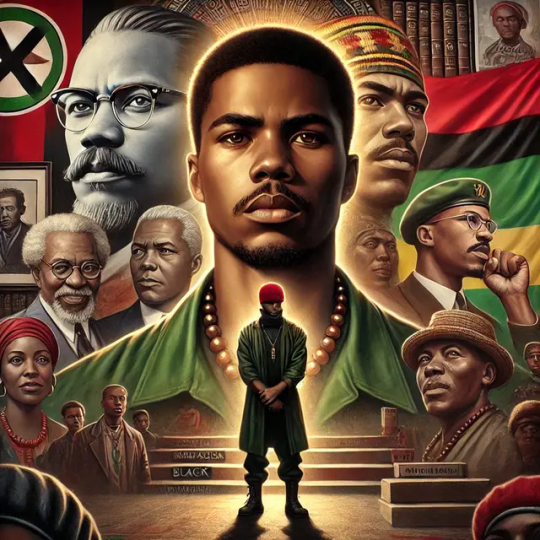
The Hypocrisy of Fake Love for Black Revolutionaries: A Garveyite Perspective on the Betrayal of Our Icons, Leaders, and Ancestors
From a Garveyite perspective, one of the most dangerous betrayals in the Black community is the false admiration for Black revolutionaries, icons, and ancestors. Many Black people praise these figures publicly but refuse to embody their teachings, sacrifice for the movement, or apply their wisdom in daily life.
Marcus Garvey himself experienced this hypocrisy: he was celebrated by millions but was ultimately betrayed by his own people, leading to his persecution, imprisonment, and the destruction of the Universal Negro Improvement Association (UNIA).
This false love for Black revolutionaries is a form of empty hero worship—where Black people:
Wear the names of Black leaders on their clothes but refuse to carry their ideologies in their hearts.
Quote Malcolm X, Assata Shakur, and Garvey but live according to white capitalist values.
Praise the ancestors but continue the same behaviours that kept Black people in chains.
This analysis will explore:
How Black revolutionaries are romanticized but ignored in practice.
The betrayal of Black leaders in their own lifetimes.
How the system benefits from keeping Black leaders as symbols rather than applying their teachings.
The failures of modern Black movements to truly follow Garveyite principles.
How we must break the cycle and truly honour our icons with action, not just words.
1. The Romanticization of Black Leaders While Ignoring Their Teachings
Many Black revolutionaries are treated like celebrities rather than serious leaders.
A. Turning Black Leaders into Symbols Instead of Following Their Actions
People wear Malcolm X shirts but still believe in integration and white validation.
They post Garvey quotes online but refuse to build Black-owned businesses or invest in Pan-African economic power.
They celebrate Dr. King but ignore his late-stage radicalism against capitalism and imperialism.
Example: Malcolm X rejected integration and white liberals, yet today, many of the people who claim to admire him fight for assimilation into white institutions instead of Black independence.
B. The Empty Worship of Black Ancestors Without Change in Behavior
Many Black people claim to honor the ancestors, but still:
Use their resources to enrich non-Black communities.
Reject African traditions and spirituality in favour of white religions.
Teach their children Eurocentric values instead of Pan-African principles.
Example: The same Black people who praise Queen Nzinga and Shaka Zulu will still vote for anti-Black politicians, neglect Black-owned businesses, and refuse to defend their own communities.
Key Takeaway: Garveyism teaches that honouring our icons means CONTINUING their work—not just admiring them from a distance.
2. The Betrayal of Black Revolutionaries in Their Own Lifetimes
Throughout history, many of the same Black leaders we celebrate today were rejected, attacked, or betrayed by their own people when they were alive.
A. How Marcus Garvey Was Betrayed
Garvey built the largest Black movement in history, but many of his own people helped destroy him.
W.E.B. Du Bois and the NAACP opposed him and worked with the U.S. government to undermine the UNIA.
Many Black elites and integrationists mocked his call for African self-rule and repatriation.
Example: When Garvey was arrested on fraudulent charges, some Black leaders celebrated his downfall, showing their loyalty to white power structures over Black independence.
B. Malcolm X and the Nation of Islam Betrayal
Malcolm X risked his life for Black people, but when he started exposing the weaknesses of the Nation of Islam, he was abandoned and ultimately assassinated.
Many of his former supporters refused to stand with him when he needed protection the most.
Example: After Malcolm X was killed, Black people mourned him—but where were those same people when he was alive and fighting alone?
Key Takeaway: Too many Black people only recognize greatness AFTER a leader has died—but real support means standing with them while they are alive and fighting.
3. The System Benefits from Keeping Black Leaders as Symbols, Not Teachers
The white power structure wants Black leaders to be icons, not active ideologies. They understand that:
A dead revolutionary is harmless; a living one is dangerous.
A Garvey shirt is acceptable; a Garveyite movement is not.
Dr. King’s “I Have a Dream” speech is promoted; his speeches about fighting capitalism and imperialism are ignored.
Example: The U.S. watered down Dr. King’s radicalism and now uses him as a symbol of “peace” rather than a fighter against white supremacy and economic exploitation.
Key Takeaway: The system promotes a version of Black history that is safe and non-threatening—true Garveyites must reject this watered-down history and embrace the full revolutionary teachings of our leaders.
4. The Failure of Modern Black Movements to Apply Garveyite Principles
Many modern Black movements:
Focus more on representation in white spaces rather than building independent Black power.
Seek validation from white liberals rather than unifying with Africa and the global Black world.
Celebrate Black icons without practicing self-reliance, cooperative economics, or Pan-Africanism.
Example: Some modern Black activists claim to admire Garvey but spend more time appealing to white-owned corporations for funding than building their own economic power structures.
Key Takeaway: Black liberation can not come through white money, white validation, or white institutions. Garveyism teaches that true power comes from self-reliance and unity among Black people worldwide.
5. How We Must Break the Cycle: Honouring Black Icons Through Action
To TRULY honor our ancestors and revolutionaries, we must:
Practice Pan-Africanism – Work with Black people globally, not just within colonial borders.
Build and support Black-owned businesses – Keep wealth circulating within Black communities.
Teach Black children about REAL Black history – Not the whitewashed version.
Protect Black revolutionaries while they are alive – Not just mourn them after they die.
Reject the trap of white validation – Stop seeking approval from the same system that destroyed our leaders.
Final Takeaway: Garvey warned us: Black people must stop being spectators in their own liberation. If you love our leaders, SHOW IT by continuing their work—not just praising their names.
Conclusion: Time to Put Respect in Action, Not Just Words
If Black people TRULY loved Garvey, Malcolm X, Assata Shakur, and our ancestors:
We wouldn’t be begging for acceptance from white society.
We wouldn’t be spending trillions on white businesses while Black communities remain poor.
We wouldn’t be waiting for white governments to save us instead of uniting with Africa.
True love for Black revolutionaries means:
Practising their teachings.
Building the systems they fought for.
Sacrificing for the future of Black liberation.
As Garvey said:
"We must canonize our own saints, create our own heroes, and elevate our own history."
Words are not enough. The time for REAL action is NOW.
#black history#black people#blacktumblr#black#black tumblr#pan africanism#black conscious#africa#black power#black empowering#black liberation#black revolutionaries#black revolution#self determination#reparations now#Garveyite#Garveyism#marcus garvey
75 notes
·
View notes